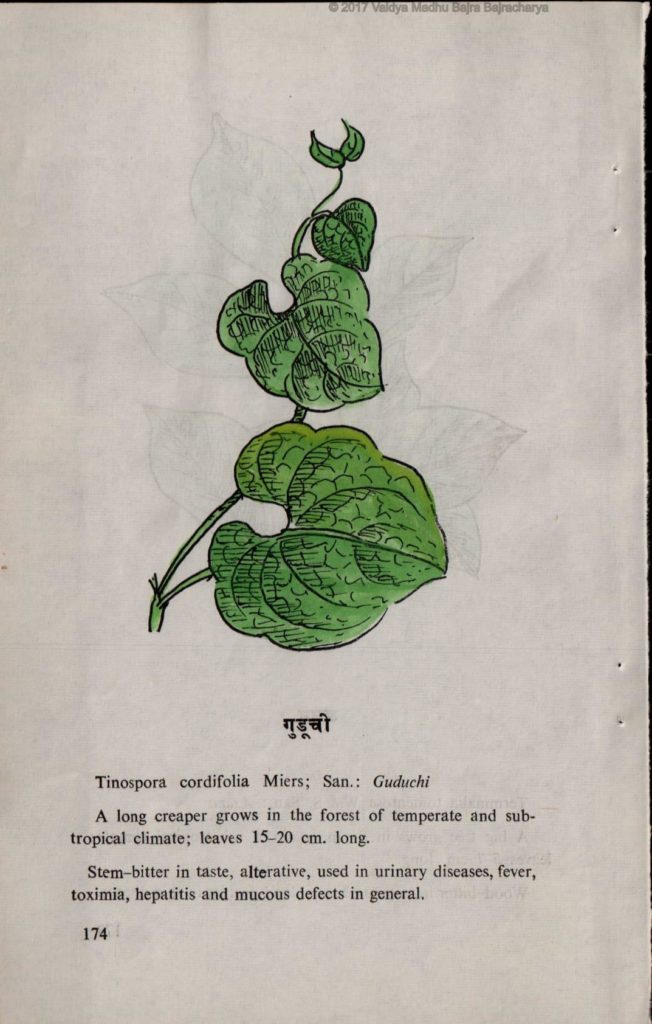Latin: Tinospora cordifolia
Sanskrit: Guduchi
English: Heart-leaved moonseed
WHAT IT DOES: Guduchi stem is bitter in taste and warming in action, and is a rasayana tonic for good health and longevity. It has strong anti-toxin and anti-inflammatory properties, reduces mucus, protects the liver and has a calming, stabilizing effect on the nervous system (Vata).
RATING: Gold
SAFETY ISSUES: None known.
STARTING DOSAGE:
• Dried powder: two grams two to three times per day
• 4:1 concentrated powder extract: one gram two times per day.

The guduchi plant is a long creeper with a succulent stem that grows in temperate and sub-tropical forests. It is used to treat fevers, hepatitis, gout, toxemia, and urinary diseases. It is also often used by itself as a tonic tea. Guduchi stem is a diuretic, helping expel toxins, including uric acid, through the urine. What makes it unique is that is also a tonic and aphrodisiac, useful in treating impotence and debility from chronic disease. Dr. Mana (my Ayurvedic teacher) told me this herb has the special power (prabhava) of restoring balance without ever causing over-balance (samanam). In our clinic we use guduchi stem to treat infectious or chronic diseases where there is a need to detoxify and strengthen without disturbing the system further, such as with chronic hepatitis patients or those undergoing chemotherapy. It is a useful adjunct to any detoxification protocol.
Research Highlights
• Studies have shown guduchi to have general significant anti-inflammatory effects as well as specific anti-inflammatory action in cases of rheumatoid arthritis and liver toxicity (Pandley et al., 1996).
• Guduchi stem was tested for its ability to handle changes in immune cells after rats were exposed to different types of toxins. It was found to normalize phagocytic function irrespective of the nature of change in the cells, complying with the definition of an adaptogen (Rege, 1999).
• Animals treated with the herb were able to significantly recover liver function in the weeks following experimentally inflicted damage. Their liver immune cells (Kupffer cells) were protected against the damage, while those animals not given the herb exhibited perpetuation of damage (Nagarkatti et al., 1994).
• Guduchi’s hepato-protective and immuno-modulatory properties were also shown to enhance the host defenses of a group of surgical patients, as indicated by the absence of post-drainage sepsis (Rege et al., 1993).
• Another group of researchers concluded that guduchi stem and shatavari root were potent immunostimulants, with value for patients receiving cytotoxic drugs, when they were found to protect mice against bone marrow suppression from cyclophosphamide, a chemotherapeutic agent (Thatte UM et al., 1988).
